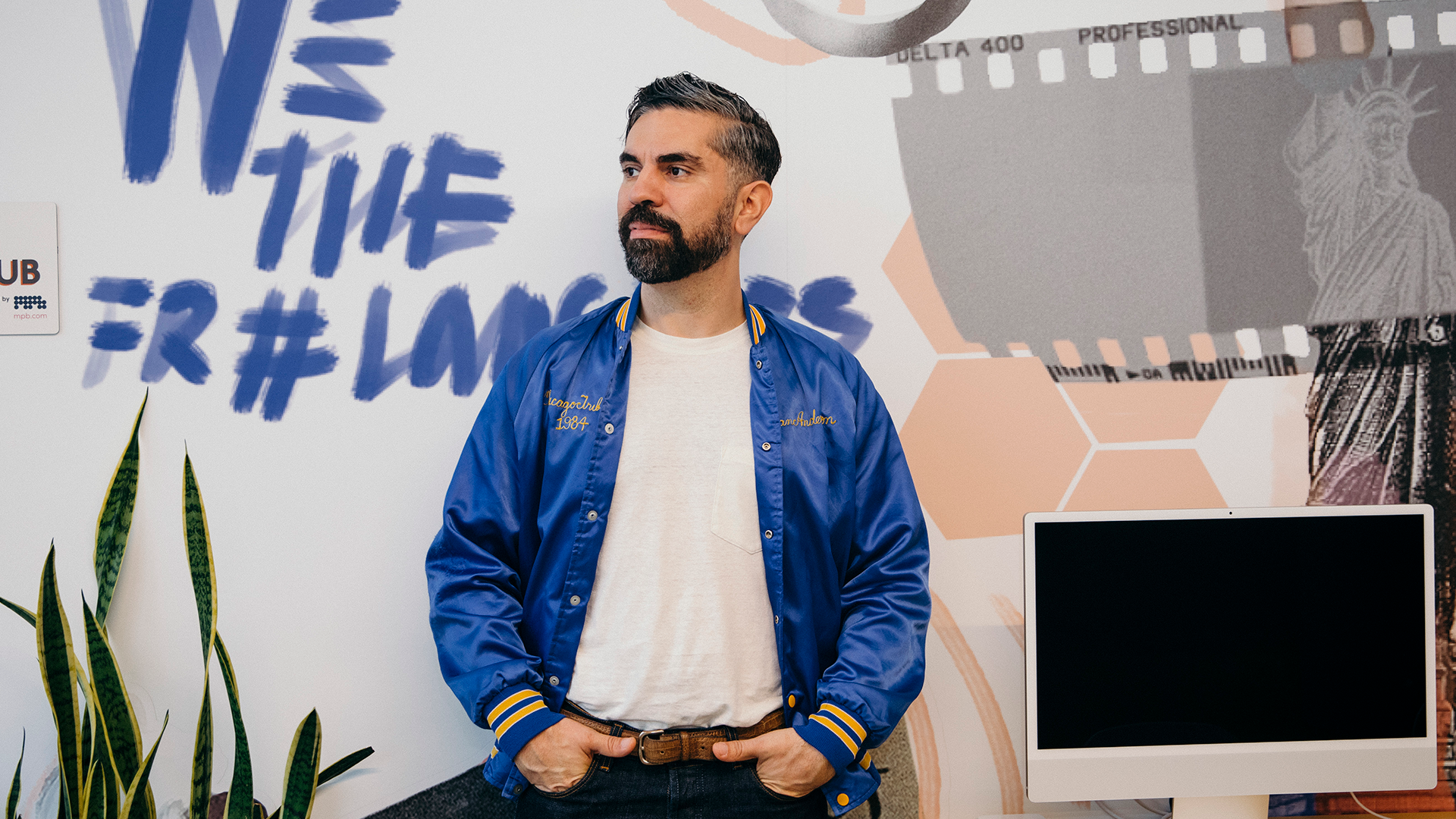What was it like growing up in Cypress Hills? And what were you like as a kid?
I love this question. I have been a creative all my life. I was always interested in the visual arts, specifically photography and filmmaking. My dream was to become an independent filmmaker. I think a lot of it had to do with me feeling out of place. I was always an independent thinker, and I grew up in a community that was heavily disinvested in, historically. I felt like my only escape was through watching films and seeing stories on TV.
What were some of the films you found inspiring?
I mean, it’s a little dark. I remember the first movie that made me interested in the idea of becoming a filmmaker was Seven, directed by David Fincher. I was 12 years old and somehow—I think my older siblings were watching it…
It’s always the older siblings!
I was blown away by how powerfully that story was told. I was really interested in the idea of being able to use a medium like filmmaking to impact other people’s lives emotionally, or I guess for me, it was spiritually—something that kind of sat in my soul and really drove how I wanted to approach my life. Growing up in Cypress Hills, dealing with a lot of socioeconomic issues—crime, unemployment, lack of investments in overall infrastructure—I was captivated by the idea of using filmmaking to frame the stories of the people in my community in a positive light.
So how did you go from filmmaking to politics? It’s kind of a big jump.
I got to college and I majored in film and media. Then I pivoted to English and creative writing. I thought it was the most practical thing to do, to potentially become a teacher while I planned out how I was going to become a filmmaker. When I graduated college a community leader informed me about a job with then-New York City council member Erik Dilan, who was looking for someone who had a strong writing background. I thought it’d be a great way for me to make some money while I applied to grad school for an MFA and tried to become a teacher while trying to become a filmmaker.
In that role, it immediately became clear that a lot of the issues we encounter as residents of communities can be solved by the power of local political office. I was exposed to how the decisions of my local council member impacted the community that I grew up in, I lived in—everything from infrastructure to funding our education systems, from how we deal with crime to “How do we create resources to keep people from a path of committing crimes?” to filling potholes. I thought, Wow, this guy has so much power and influence. How would it be to have someone actually from the community take that position of power? A fire lit in my belly, and it tied into my original passion: telling the stories of my community to inspire and to shed light on the issues they were facing.
For me, as someone outside of politics, it seems like it can take a long time for change to actually happen. When you first took this role, what experiences made you realize positive change was possible?
There were two. One was a direct interaction I had with a constituent who called the office, a father concerned about his daughter who was being bullied and had stopped going to school because she was afraid. He was having a difficult time navigating the red tape to have his daughter transferred. I remember simply picking up the phone as a representative of the council member’s office, calling the principal, and saying, “Hey, this is an issue happening on your watch. Is there anything you can do to address this quickly?” Within days, we were able to have his daughter transferred to a new high school. I remember him calling me weeks later saying, “She’s back in school and she’s doing well because of you.” I was 23 years old. I’m like, Oh my God, that’s it. I changed someone’s life by making a phone call.
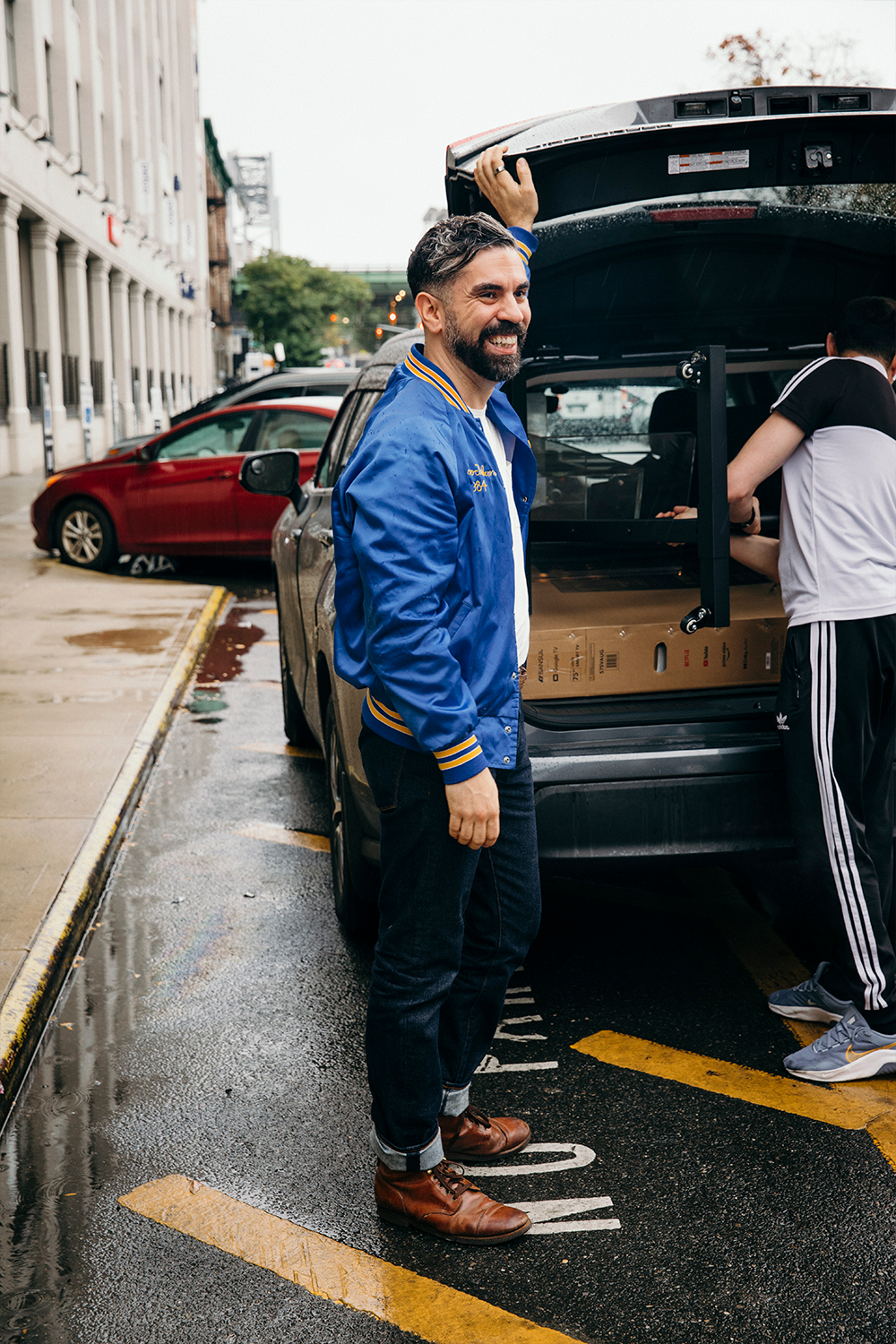

And then second, I remember the council member calling me into a meeting with the commissioners of the parks department. There was a local park I grew up going to and it felt like a sandlot, less so a public park. He was actually pushing [the commissioners] to make an investment to help rebuild its ballfield and playgrounds and basketball courts. I saw how easy it was, this change that you’ve been hoping for all of your life simply happened over a meeting. He invested $2.5 million into that park. And in my time in office, I invested over $20 million; it’s now a state-of-the-art park.
How did you go from helping a council member to actually being a council member at such a young age?
I mean, all credit to the council member I worked for. He saw the drive and passion I had on the issues he was working on and the community itself. I was working so hard, staying in the office late to work on correspondence, press releases—anything that he needed to get done. And he asked me, within six months, “Would you ever consider running for political office?” I thought the idea was crazy, but he planted the seed and made me think about whether it was something I wanted. Obviously it became something I wanted, and I dedicated my life to achieving that.
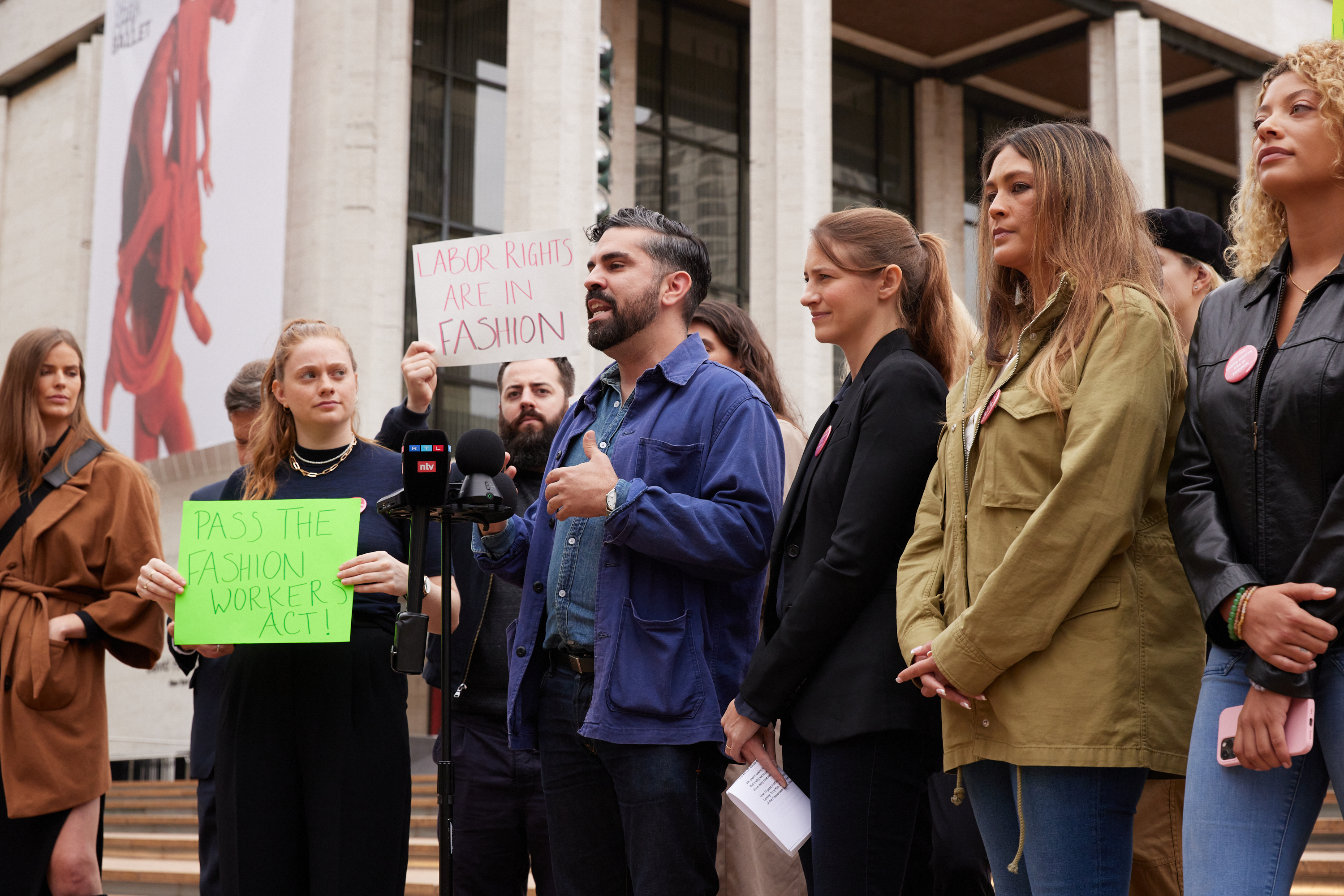
What was the first office you held?
The state representative resigned while I was working for the council member, so I ran for New York State Assembly at the age of 26. There were folks younger than me in the past, but at the time I was the youngest elected official in the state of New York.
Holding a political position while being that young, was it an advantage or a detriment to what you were trying to do in office?
It was definitely a mix of both, but mostly I saw it as a strength. Politics is very cutthroat. Pushing agendas and trying to move up the political ladder to become a strong voice takes a lot of maneuvering. And I think my young age disarmed a lot of my colleagues. They saw me as someone they wanted to support or provide guidance to. My age helped me have conversations they wouldn’t have with other folks. Also being able to get them to listen to what was important to me, and being a millennial, what was important to people of my generation—I think it was very informative for them too.
And, of course, the disadvantages. I wasn’t as politically seasoned as everyone else. When I got into office, I was extremely committed to the day-to-day issues of my community, like helping that one person transfer their daughter to a new school. And in Albany [New York’s capital] and in City Hall, people are mainly focused on the legislative process and passing bills that affect the overall city or state of New York. So that was an area I had to quickly learn.
Are there any moments in your early political career that are kind of cringey to look back on, as you were learning the ropes?
I mean, yeah, as an artist I have a lot of social anxiety. Art was my way of communicating, so one of the biggest insecurities I have is public speaking. I never looked back at the tapes of what I said the first time I stood up in Albany and spoke on a piece of legislation. It was my first day and maybe I was feeling this energy of wanting to be seen and heard. I remember just getting up, turning the mic on, and speaking on the bill that was being presented. I just don’t remember what I said.
What are some of the things you’re most proud of accomplishing during your time in office?
As a local city council member, I’m most proud of being able to work with then-Mayor de Blasio to make historic investments in the Cypress Hills/East New York community. I was able to deliver over $250 million in capital improvements. Every school that needed computers was able to get those computers. Every park that needed upgrades received those upgrades. We were able to build a brand-new school to deal with overcrowding and made investments in local industrial areas to help create jobs. As a city representative, I spent a lot of my time focusing on issues that affected creatives, artists, and small businesses. I worked with Freelancers Union to create the Freelance Isn’t Free Act, the world’s first legislation that gave freelancers non-payment protections.
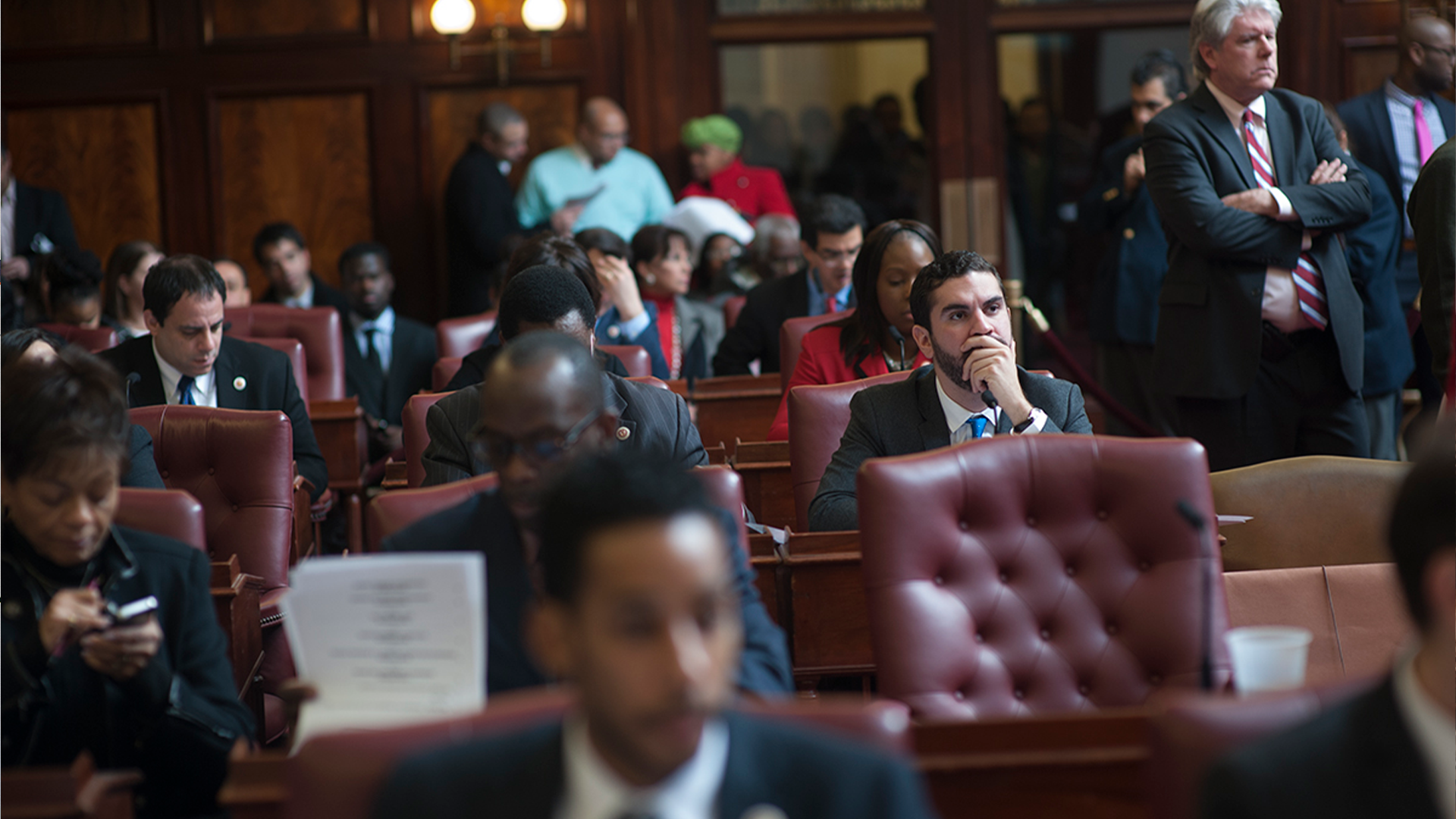
When did you first encounter the Freelancers Union? What was it about their mission that resonated with you?
I was 18 years old, a freshman in college. I was riding the subway and their posters were on every train car. What stood out to me was that they were focused on supporting creatives in film, TV, media, and other design industries. And they had a heavy focus on building community for those folks. I remember thinking to myself, When I start working in film, I’m going to become a part of that union. That always stuck with me. So fast forward, I’m in office and I get a call that the Freelancers Union wants to meet. I immediately said yes, and their founder Sara Horowitz came in to present the idea of the Freelance Isn’t Free Act.
Tell me a little bit about the act. What does it do?
The legislation was designed to create nonpayment protections for the independent workforce, which historically had to just rely on small claims courts to collect on invoices. The bill required a contract between every freelancer and their client with certain stipulations, mainly net pay for 30 days. So, by law, every freelancer has to be paid within 30 days in the city of New York. If the client doesn’t pay, the freelancer now has the power to call on the city to intervene. The city will reach out to that client on your behalf and make them aware that if they don’t comply they can be fined and also be held liable to double damages and attorney fees if the freelancer ultimately has to go to small claims to pursue their payment.
And like you said, that was the first legislation of its type in the world. What’s happened since?
It was passed in 2017 and for a long time, New York City continued to be the only city with such regulations. Honestly, it wasn’t until 2020 that other cities began having conversations about implementing similar legislation. When I took on the role as the executive director of the Freelancers Union, it was during the height of the pandemic when there was a heavy light shone on the need to create a broader social safety net for independent workers. I used that time to reach out to legislators on a local level—in Los Angeles, Seattle, Minneapolis—and they immediately thought it made sense. That was surprising because from what I’ve learned, it was difficult for the union to gain traction within the halls of government in other parts of the country. I think a lot of that has to do with how uninformed legislators are about how freelancers operate. The pandemic helped start a conversation about what local governments and the federal government can do.
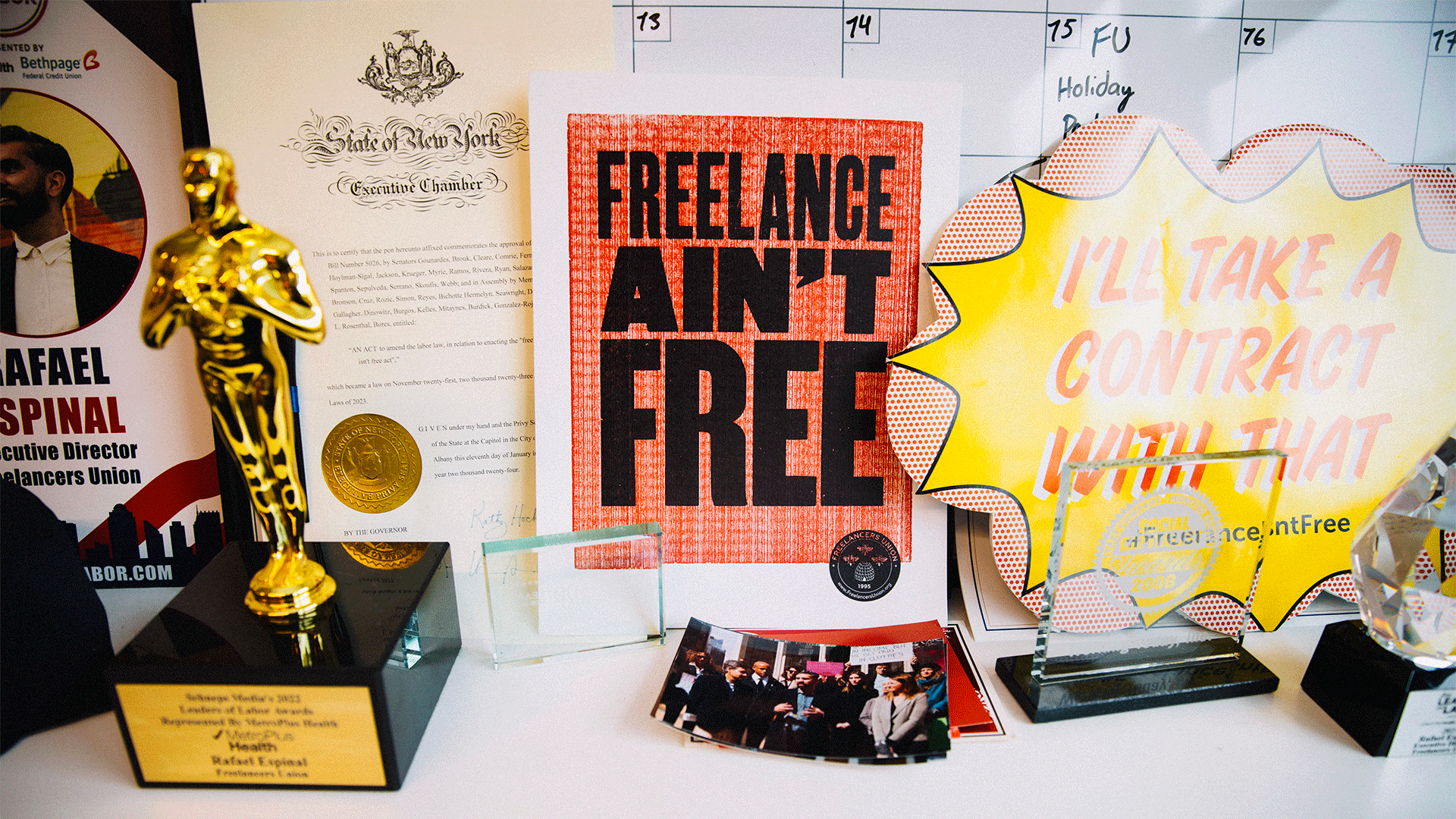
Was it a tough choice for you to leave politics for the Freelancers Union?
It was a difficult decision, but it was also the right fit at the right time. I had no plan to leave elected office. I was nearing the end of my term as a city council member and ramping up to run for higher office and of course that takes a lot of time and energy and fundraising. So [the Freelancers Union] approached me at the right time mentally, thinking about what my future was going to look like. At the time, I remember thinking the idea was crazy, not because I couldn’t envision myself leading this organization, more so I couldn’t let go of being an elected official. But I thought to myself, If there’s any organization I would love to work for, it would be the Freelancers Union. And these opportunities don’t come all the time.
What’s the biggest difference in your work life now, compared to when you were in office? Is it a mind shift? Is it the daily workload? What has that transition been like?
I’m someone who’s always on the go. I’m fueled by the constant anxiety of getting things done. When you’re in local politics, that energy pretty much aligns with your workload. As soon as you wake up, you have the local office to manage, you have a team focused on day-to-day issues, your constituents, the phone’s ringing off the hook—people need help filling this pothole, filling out an immigration application, getting into affordable housing—while you’re also getting calls to show up to City Hall to talk about legislative priorities while you’re also thinking about fundraising in order to win your next election while you’re also being yelled at by those who are contrarians to how you approach the job. So you’re constantly a ball of stress.
When I pivoted to the Freelancers Union, I thought I was going to take the first few months to learn the day-to-day of being an executive director. But I took on the job two weeks before the pandemic struck. I quickly had to put my political hat back on to think about, How do we deliver for the millions of independent workers who now have no access to benefits? To help them deal with the fact that their work has dried up? Thinking about how to create emergency cash assistance through the organization, while also working with the federal government, speaking to Senator Chuck Schumer’s office, to ensure that any sort of aid package out of Washington D.C. includes independent workers, while also working with the media to shine a light on the dire situation freelancers were facing. So I was in my groove, it was what I was used to. Now, while I am still thinking about legislative opportunities and continuing advocacy and just running an office as a whole, things are a lot quieter. I’m learning how to find balance and stillness within myself and appreciate how quiet the world has gone.
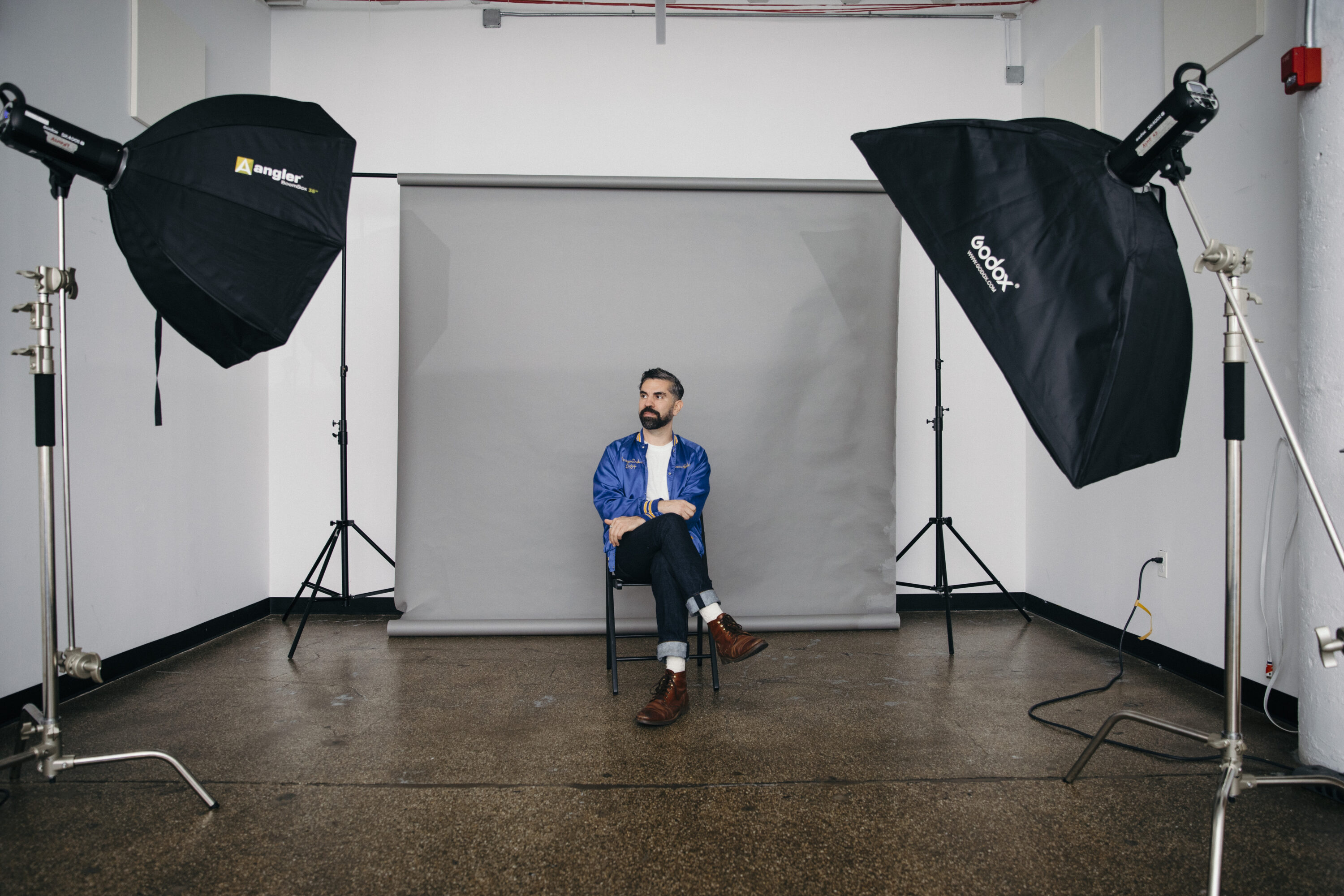

Just listening to your experience is turning me into a ball of stress. Which makes me think of something we like to talk about at The Great Discontent: the difficult junctures in your path. What has been your greatest moment of discontent, and what came out of it?
It definitely happened in my last year in politics, and it’s what really helped fuel my decision to come on board and lead the Freelancers Union. It became abundantly clear that there are a lot of machinations and political levers in place that don’t allow you to fully pursue the issues that you feel need to be addressed, because there are going to be political players in higher positions of power who will throw a wet blanket over your ideas. One, because they don’t believe it aligns with their overall goals or vision. But two, if they believe that it might disrupt the status quo.
My last year in office, I was pushing progressive agendas like this bill that I introduced, the first of its kind in the nation, called the Right to Disconnect, giving workers the right to disconnect from their digital communications after normal work hours. It was stonewalled by both the mayor’s office and the city council. Constantly being stonewalled toward my last year in office burnt me out. It made me feel as if I didn’t have the power to continue pushing for what I thought was right within the halls of the government, delivering for people who I felt were most vulnerable or whose voices weren’t being heard. And I saw the Freelancers Union as an opportunity to be able to organize and create a unified voice within the community to help push progressive policy that is going to benefit all workers in the end.

Do you think you’ll go back to filmmaking? Is that still on your creative horizon?
My big secret is that I’m writing some screenplays and I hope to film my first professional short film in the next few months. I have work-life balance now. I spend my weekend mornings working on my screenplay, and I’m now in a pre-development phase where I’m talking to a DP and a film crew, and I’m trying to recruit some actors to make my dream a reality.
That’s so cool! What’s your screenplay about?
It’s centered around my experiences in government, but more so the people who have been affected by the bureaucracies of government. It tracks this woman who lives in public housing and is trying to reunite with her son. There are a lot of rules around ex-convicts being able to move into public housing, and I want to focus on the role bureaucracy and government play in keeping families separated instead of uniting them—how government and bureaucracy take a toll on people’s mental health.
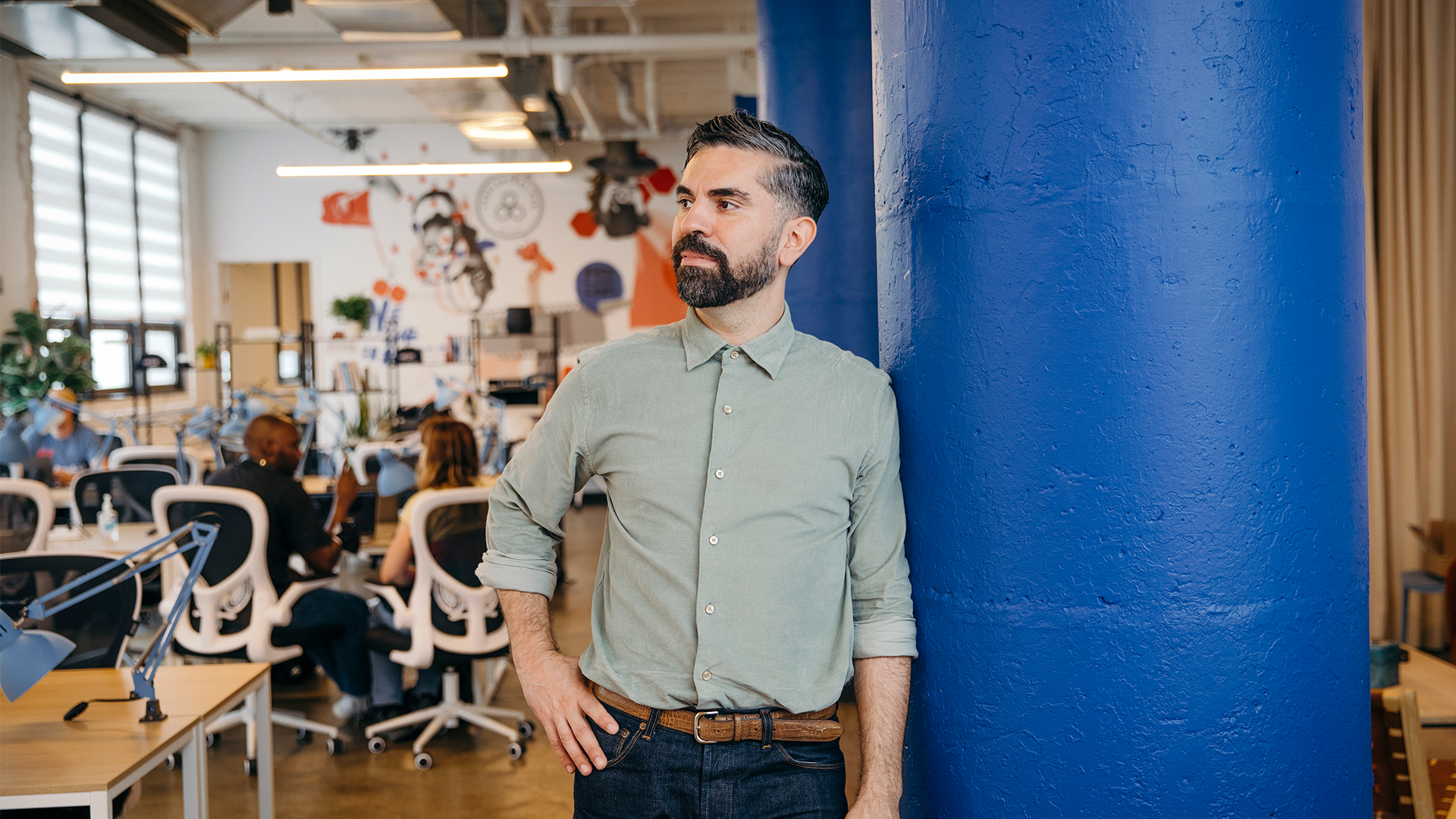
Now that the pandemic is no longer calling attention to the needs of independent workers, is the Freelance Isn’t Free movement still gaining traction?
Yeah, we’ve actually had one of our most exciting years because we were able to get the first three states in the country to pass a Freelance Isn’t Free Act—Illinois in July, New York at the end of August, and in September, Governor Newsom signed the bill into law in California. Our end goal is to be able to approach Congress and show proof that the bill is working across the country and make it federal law.
What do you find most challenging in your role as the leader of a nonprofit advocating for the rights of independent workers?
I think one of my biggest pain points is that organizing creatives is like herding cats, right? I think it’s great that we’re all independent and independently minded. I think there comes a time that if we want to create a society in which all workers are benefiting, we have to put a little more effort into finding time to use our collective voice to advocate for what’s important for us.
As one of those cats that needs herding, what is the best way for us to do that?
The easiest thing you can do is become part of organizations like the Freelancers Union, AIGA, the National Writers Union. Because they truly are thinking about those issues. And whenever they have an opportunity for you to get involved, whether it be to write a letter to your local legislator or to show up to a town hall meeting, then take that opportunity to show up, and that opportunity will contribute to creating a better society for all independent workers.


